wikiHow is a “wiki,” similar to Wikipedia, which means that many of our articles are co-written by multiple authors. To create this article, 9 people, some anonymous, worked to edit and improve it over time.
There are 10 references cited in this article, which can be found at the bottom of the page.
Learn more...
If you experience mentruation, you know it can be a pain. You may be struggling with extra challenges, such as sensory processing disorder and executive dysfunction, as an autistic person. Thankfully, in this article we have compiled many tips to help you cope. This article covers symptoms of menstruation, and general health risks to avoid, as well as unique tips for individuals.
Steps
Getting Organized
-
1Try using a calendar or app to track your period. Tracking your period can be tough, especially if you struggle with executive dysfunction. Consider experimenting with apps or calendars to help you plan ahead and recognize when your period is coming.
-
2Work on learning the signs that your period is coming. Everyone's body is different, so start identifying things that tend to precede your periods. Recognizing these patterns can help you prepare. Common symptoms before periods include:[1] [2]
- Headache
- Mood swings
- Worsening acne
- Tender or swollen breasts
- Lower back pain
- Cramps
- Bloating or gas
- Constipation or diarrhea
- Energy issues, like tiredness
- Sleep issues, like difficulty sleeping or restlessness
Advertisement -
3Find the best menstrual products for you. There are more options today than there were a few decades ago, so you may not have heard of all of them. Comparisons of different menstrual products are online.[3] Don't be afraid to experiment and see what you like best.
- Pads are easy and non-invasive, and it's easy to tell when they need changing.
- Tampons are comfortable when inserted correctly, and can let you go swimming or participate in sports more easily. However, toxic shock syndrome is very dangerous,[4] so only use tampons if you know you can change them regularly (and remember to change them).
- Menstrual cups can be tricky, but may be worth learning to use. They can be left in for longer.
- Period underwear can be helpful with a lighter flow.
-
4Understand basic hygiene and procedures. Knowing how to keep clean and safe may be harder if you don't have a female relative to show you.
- Change your pad/tampon/product when you use the toilet. Afterwards, wash your hands thoroughly with lots of soap bubbles and rinse thoroughly with clean water.
- Wrap up used pads or tampons and throw them in the garbage (never put them into the toilet). If you use cleansing wipes, do not put them in the toilet either; the package may say the wipes are flushable, but those wipes do not disintegrate and instead, clog machinery at wastewater treatment plants.
- Wash between your legs in the shower using water or mild soap. Don't try to wash inside your vagina because your vagina needs to clean itself. Natural fluids inside your body help 'rinse' the vagina, without any help. However, you should wipe, from front to back, with a soapy washcloth, and rinse the cloth so you can wipe front to back to remove the soap. It often takes more than one rinsing to remove blood from your privates. Make sure to rinse all the blood from the washcloth, too.
- Use a darker colored washcloth (and towel) when you are on your period. Still rinse out these, until the water going through the cloth is no longer red or pink.
-
5Learn how to clean period stains. Accidents happen and you don't need to feel bad about it. Soap and cold water can get rid of (or at least drastically minimize) a stain.
Coping Physically
-
1Find ways to manage cramps. Menstrual cramps are uncomfortable. Figure out what you need to help manage the pain and help you feel better.[5] [6]
- Heating pads or hot water bottles
- Warm baths (if you use tampons)
- Massage
- Over-the-counter medication
- Easy exercise
- Clench and relax stomach muscles
- Lie down with your knees up (either on your side or on your back with a pillow under your knees).
- Try pads instead of tampons
Did You Know? Menstrual cramps come from muscle tension. Take action as soon as you notice them to help avoid it getting worse.[7] Tensing those muscles as hard as you can and then relaxing them may help them unclench as well.
-
2Manage bloating as desired. Bloating causes your stomach area to become tight and swollen. While it'll go away on its own, there are a few things you can do if it's bothering you.[8]
- Hydrate
- Eat healthy foods low in salt
- Avoid caffeine
- Try light exercise
- Sleep well
-
3Stay clean to manage odor. If you don't like the smell coming from inside your underwear, then make sure to change your pads often. You can rinse your privates with water in the shower.
- Don't use douching products or put soap inside your genitals. These can cause irritation and could mess up your body's natural self-cleaning system.[9] Just rinse with water.
- A terrible fishy (smelling like fish) or a yeasty smell (smelling like bread), itching/burning, or a clumpy white discharge can sometimes be signs of a yeast infection. Luckily, these are very treatable. Try an over-the-counter medication or talk to a doctor about it.[10]
Coping Emotionally
-
1Deal with moodiness. Some autistic people are especially affected, while others aren't. It may manifest itself as more frequent meltdowns/shutdowns, worse sensory issues, and/or a greater need to stim. Try to recognize when this is happening and give yourself some extra patience and kindness.
-
2Cope with gender dysphoria if you're trans or nonbinary. Menstrual periods can make gender dysphoria worse. Do your best to ride it out and get through the worst part.
- If your period becomes a trigger for panic episodes or feelings of depression, seek outside help. Try confiding in a family member or friend who you trust. Seek out a doctor for help managing your dysphoria and/or transitioning.
- Ask about birth control. In some setups, you can take pills so that you only need to menstruate once a year instead of once a month. This is possible even if you're closeted.
-
3Use your trusted coping mechanisms to help you deal with stress. Notice when you feel stressed and ask yourself, "What would help me feel better right now?" Even if you're busy at the moment, you can schedule something relaxing for later.
- Do something related to your special interest.
- Stim as much as you'd like.
- Listen to your favorite music.
- Play your favorite game.
- Watch a movie or a show you enjoy.
- Try spending time with people who make you feel better.
-
4Try reaching out to family members and/or friends. Look for people who help you feel safe and relaxed. Try to spend some time with them. Here are some examples of things you can say:
- "I've been having a rough time with my period and I could really use someone to keep me company. Would you like to watch a movie with me?"
- "Could we take a walk together?"
- "I'd like to spend some time with you. When would be a good time?"
-
5Give yourself a break. You're going through something that isn't always easy. Try a few relaxing and fun activities to bring your spirits up. Give yourself permission to do something nice.
Getting Extra Help
-
1Consider birth control pills to manage your period. These pills can be useful even if you're not sexually active: they make your flow lighter and more predictable, and they may minimize upsetting symptoms like bloating and cramps.[11] Birth control pills are useful for many people who struggle with their periods, so try asking your doctor.
- Birth control pills may have side effects, so talk to your doctor if you're having trouble. In some cases, adjusting your dose may fix it.
- Birth control pills need to be taken at the same time every day. If this would be a problem for you, you might want to look into other forms of birth control that will stop your periods, like the patch, NuvaRing, depo shot, implant, or IUD.
-
2Recognize signs that your period isn't normal. Periods can be unpleasant, but they aren't supposed to be so bad that they get in the way of normal life. If your period feels like it's ruining your life, don't put up with it: there are treatments for that. Here are some signs that things aren't normal:[12]
- Flow: You soak through one pad per hour for several hours in a row, you have clots the size of a quarter or more, your period lasts for over 7 days, you get a lot of spotting between periods, you need to wear a tampon and pad at the same time, or more.
- Pain: Your cramps interfere with school or work even after you tried over-the-counter pain meds, you cramp up even when you're not on or due for your period, your cramps last more than 3 days, or your pain is otherwise abnormal.[13]
- Mood: You experience excessive anxiety, depression, mood swings, tension, lack of motivation, and/or insomnia to the point it's interfering with regular life.
Tip: If you have some of these symptoms, seek help, even if some people discourage you. It's not normal and nobody deserves to live with that. (And if a parent says "it's normal because I have it too," then it may mean that your parent has the same condition.)
-
3Ask your doctor for advice during your next check-up. You can report any difficult symptoms to your doctor and ask for advice dealing with it.
- If your period shows signs of something wrong, don't wait. Schedule an appointment soon so that the doctor can help you figure out what's wrong and how to fix it.
Warnings
- Don't hide your period from your parents. There is no problem or shame regarding having your period, and your parents will always be there to support you.⧼thumbs_response⧽
References
- ↑ https://www.webmd.com/women/pms/signs-your-period-is-coming
- ↑ https://www.healthline.com/health/womens-health/period-signs
- ↑ https://uthealthaustin.org/blog/period-products
- ↑ https://www.healthline.com/health/toxic-shock-syndrome
- ↑ https://tampax.com/en-us/period-health/how-to-feel-better-on-your-period/
- ↑ https://www.uofmhealth.org/health-library/aq0001
- ↑ https://www.uofmhealth.org/health-library/aq0001
- ↑ https://tampax.com/en-us/period-health/how-to-feel-better-on-your-period/
- ↑ https://tampax.com/en-us/period-health/how-to-feel-better-on-your-period/
- ↑ https://tampax.com/en-us/period-health/how-to-feel-better-on-your-period/
- ↑ https://tampax.com/en-us/period-health/how-to-feel-better-on-your-period/
- ↑ https://www.healthline.com/health/severe-menstrual-cramps
- ↑ https://www.verywellfamily.com/signs-your-period-cramps-are-not-normal-1959947
- ↑ https://metro.co.uk/2019/03/30/periods-can-be-overwhelming-if-you-have-autism-so-ive-created-a-step-by-step-guide-8857085/
- ↑ https://www.menstrual-matters.com/blog/autism/
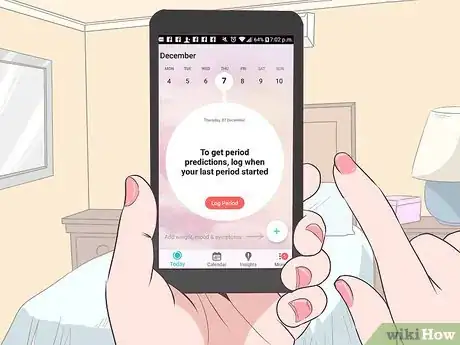

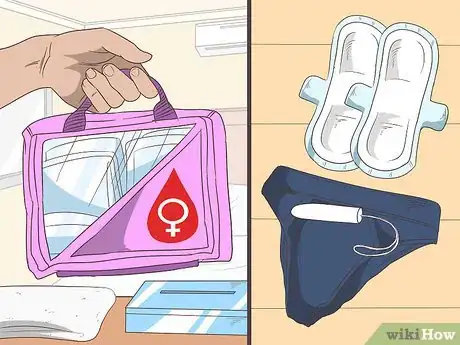
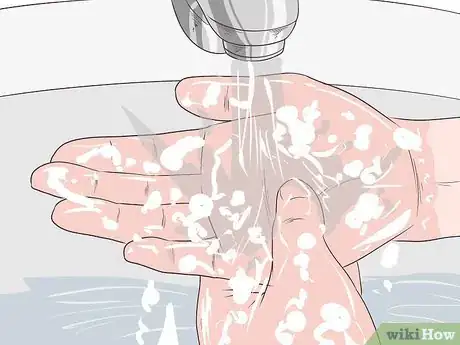
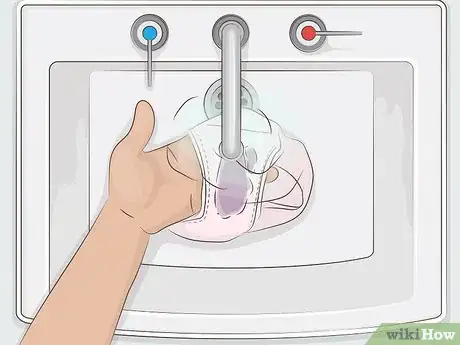
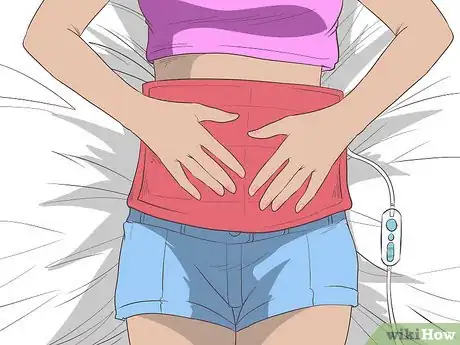
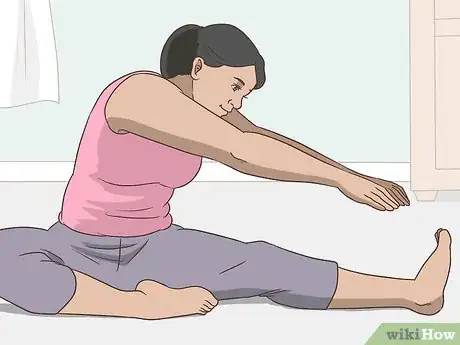
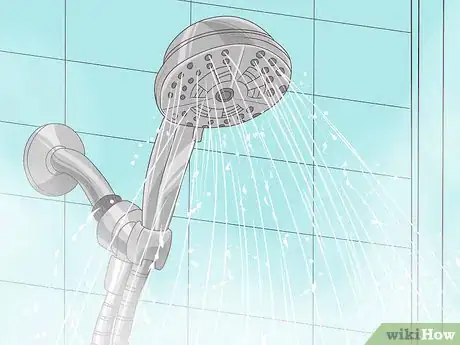
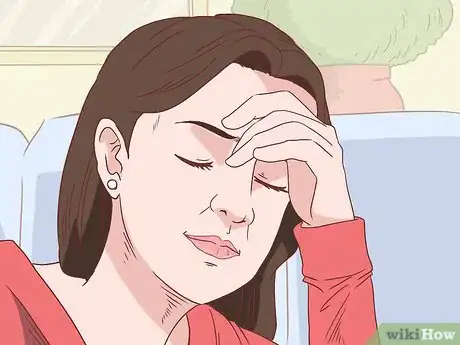
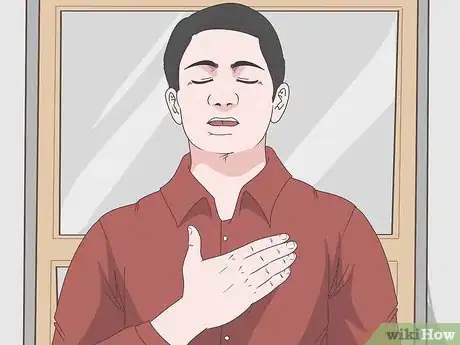



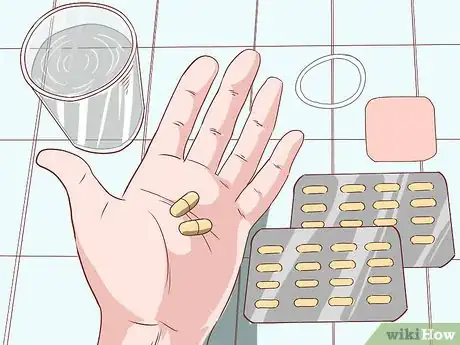
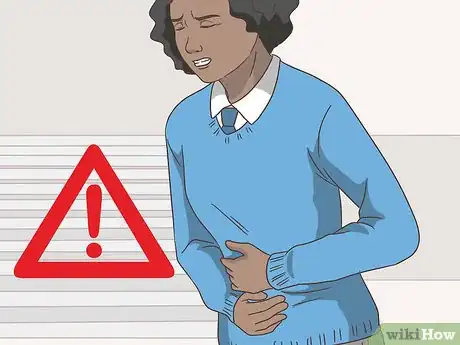
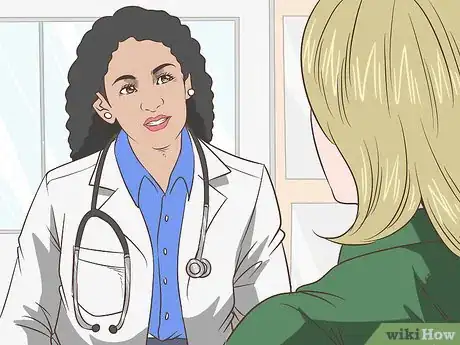


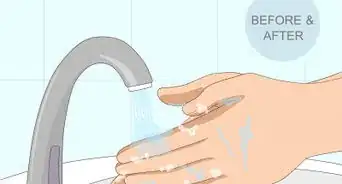
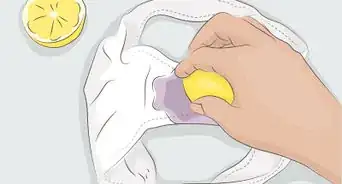
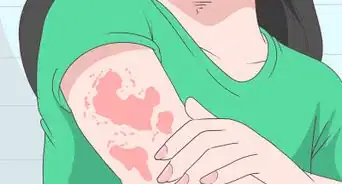


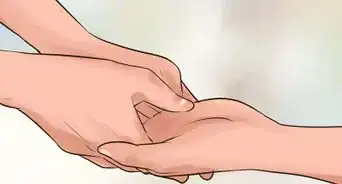
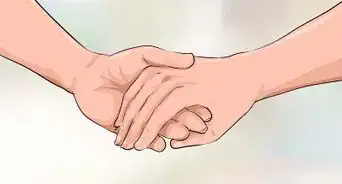













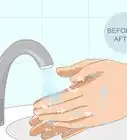
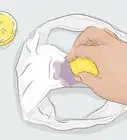



































Medical Disclaimer
The content of this article is not intended to be a substitute for professional medical advice, examination, diagnosis, or treatment. You should always contact your doctor or other qualified healthcare professional before starting, changing, or stopping any kind of health treatment.
Read More...